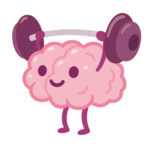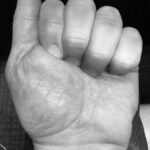Shoulder Impingement and Shoulder Pain In Guitar Players – Dr. Lou Jacobs – Portland, Maine
How guitar shape and playing style affect shoulder impingement in the strumming arm. Shoulder impingement in the arm of that strums, is a common issue among guitarists, and both the shape of the guitar and the player’s style can significantly influence the risk and severity of symptoms. Guitar Shape and Size Larger Body Guitars (e.g., Dreadnoughts, Jumbos): These require the strumming arm to reach further around the instrument, increasing shoulder abduction (lifting) and internal rotation. This position narrows the subacromial space in the shoulder, which can aggravate or cause impingement, especially during prolonged sessions 5 6 9. The internal rotation is a recipe for trouble, especially when coupled with abduction of the shoulder. If you also perform activities, like typing, chopping, or mousing, that also involve internal rotation and abduction, you are adding insult to injury. Those activities may be the “true cause(s) of the impingement, and not only the guitar. Smaller Body Guitars (e.g., OM, 000, Parlour): These allow the arm to rest in a more neutral, relaxed position, reducing the need for excessive shoulder movement and minimizing impingement risk 5 9. If you can practice on a slim body electric, then gig on acoustic, that is also...
read moreNeurodivergence and The Cerebellum. Portland, Maine.
What is the Cerebellum? The cerebellum, often referred to as the “little brain,” is a crucial structure located at the back of the brain, responsible for coordinating voluntary muscle movements, maintaining posture, balance, and equilibrium. It plays a significant role in motor learning and has been increasingly recognized for its involvement in cognitive functions such as language, attention, and social interactions. The cerebellum contains nearly half of the brain’s neurons despite accounting for only about 10% of its volume, highlighting its dense neural network and importance in processing information. The cerebellum has been linked to neurodevelopmental disorders such as ADHD and autism. In ADHD, cerebellar dysfunction is associated with difficulties in coordinating thoughts and attention, suggesting that the cerebellum’s role extends beyond motor control to cognitive processing. For autism, research indicates that cerebellar abnormalities, including loss of Purkinje cells, may contribute to symptoms such as impaired social interaction and communication. The cerebellum’s involvement in language and social cognition supports its potential role in autism spectrum disorder. Both conditions highlight the cerebellum’s broader impact on cognitive and behavioral functions, underscoring the need for further research into its role in neurodevelopmental disorders. Have you missed a window of opportunity for healing?...
read moreThe Default Mode Network (DMN) and your Chiropractor in Portland, Maine
Depression, Anxiety and Your Chiropractor The Default Mode Network Understanding The default mode network may help you take the action you need to improve your mental health during stressful times. The first step is understanding. Step two is taking action. New developments in neuroscience and understanding the brain have led to the research being published in neuroscience publications world wide. This information may the gateway to you taking better care of stress, anxiety and depression in your life. While more research will certainly be done, that which has been done so far, shows serious promise! The default mode network (DMN) is a group of brain regions that work together when you’re not actively focused on the outside world. It’s like the brain’s “default” setting, which kicks in when you’re daydreaming, thinking about yourself, or recalling memories. When you start doing something that requires attention, like solving a puzzle or working, the DMN tends to deactivate, allowing other brain networks to take over. It helps regulate emotions and maintain mental health by allowing you to reflect on your experiences and emotions. Disruptions in the DMN have been linked to various neurological and psychiatric disorders, such as Alzheimer’s disease, depression, and...
read moreThe Cost Of Chiropractic Care in Maine – 2025
The comparative cost of chiropractic care is important to understand. As the U.S. economy worsens and becomes less certain before it gets better, people are rightfully aware of how they are, or how they need to spend their money. Staying healthy and able to work in the shadow of statistics reporting clearly that back pain is the leading cause of disability in the U.S., may include outside help from a doctor. The information below is designed to help you understand what the research says. Our office is and always has been dedicated to making care affordable. The U.S. healthcare system is broken in the sense that the cost is inconceivably expensive. We are being forced to seek alternatives to traditional medical care for non-emergency help. We will continue to charge as little as possible so that everyone can afford our care and feel like they are being very well cared for without breaking the bank. Great affordable care that cuts no corners, with 24/7 access to me, and all because morally, it’s the right thing to do. Because we care about people before all else. ~Dr. Lou Cost can be a big factor when we make decisions about our healthcare. Sometimes people will...
read moreScleroderma Treatments Are Advancing. Portland, Maine
What are the most promising treatments for Scleroderma? Scleroderma is an autoimmune disorder that affects the tone of the skin and other tissues. It can present as a tight, immobilizing glove like feeling in the hands. When this disease manifests in a musician, it can be a disabling, career ending disorder. Brian Setzer was recently diagnosed with an undisclosed autoimmune disease that is preventing him from playing guitar, that he reports as feeling as though he is wearing gloves on his hands. It seems reasonable to speculate that the disease is more specifically, “Scleroderma”. At first, even second glance, this wouldn’t leave too many feeling optimistic about his future of playing. As one of the rockabilly guitar heroes of the past many decades, this news has been very disappointing for many. I did a bit of research on the more recent developments in treatment for scleroderma and this is what I found. While #2 seems like it could be a bit more invasive, but given that scleroderma can be fatal, #2 addresses this and seems to be pretty effective! So, based on recent clinical trials and research, the most promising treatments for scleroderma that show significant success rates are:...
read more




